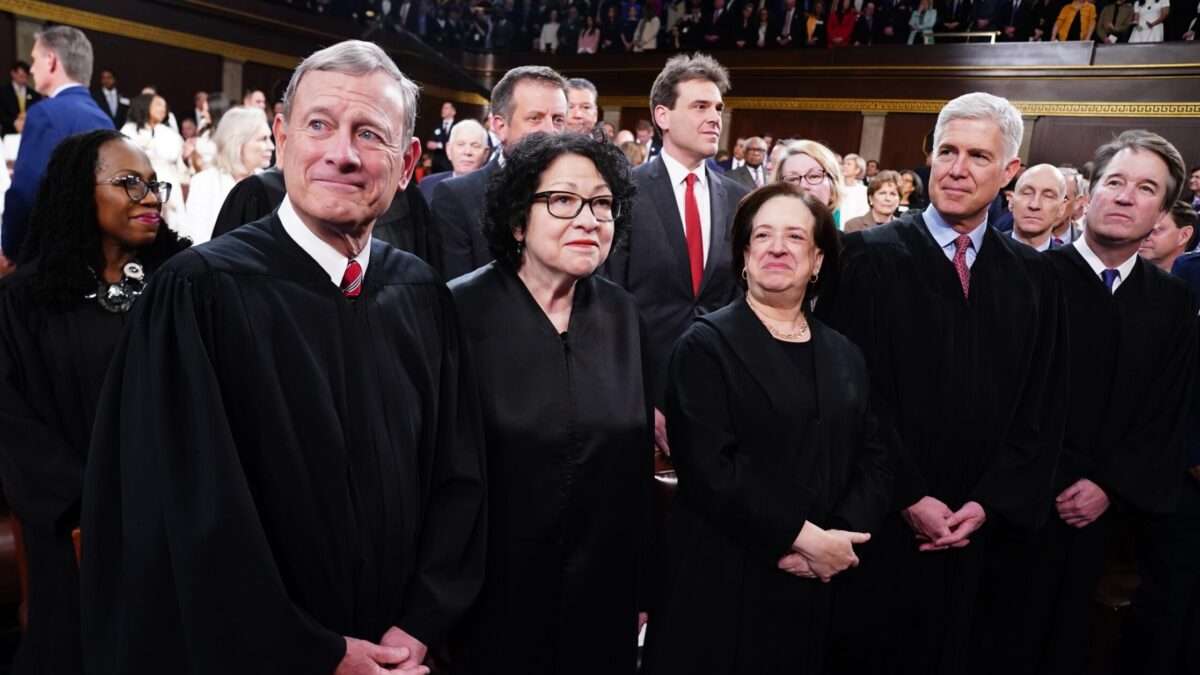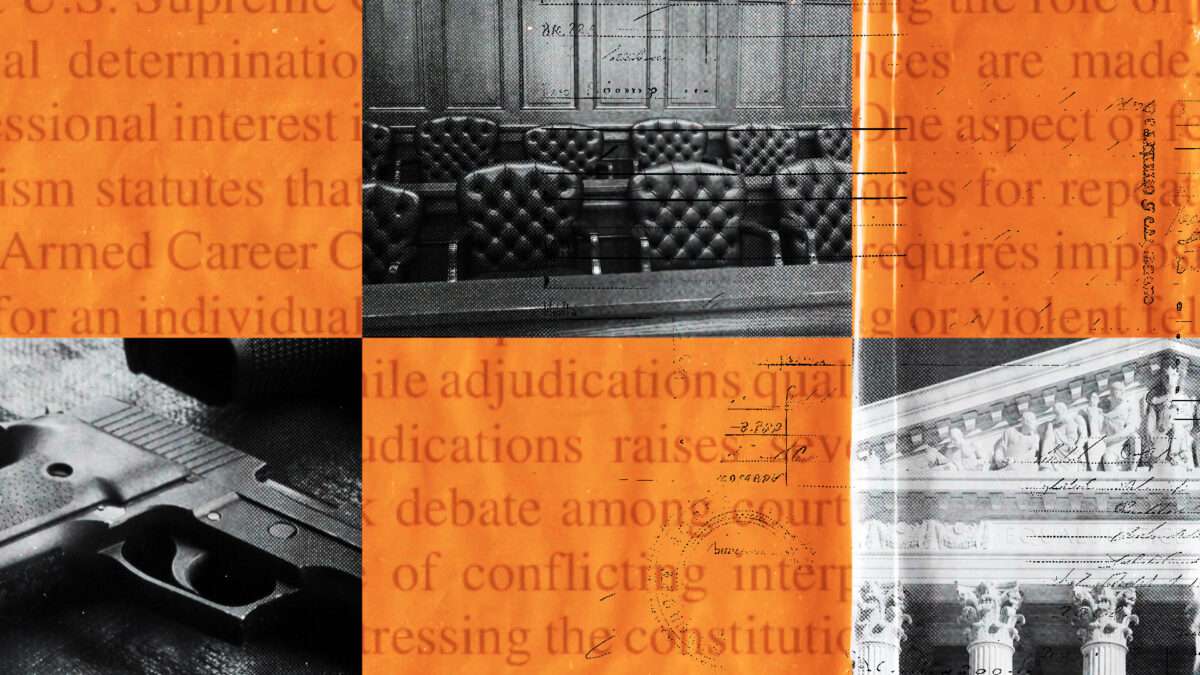Biden's Supreme Court Reforms Are Unnecessary and Wrong

President Joe Biden's new op-ed in The Washington Post makes the bold argument that, following a constitutional amendment to reverse a recent Supreme Court decision, Congress should pass both Supreme Court term limits and an ethics code to "restore the public's faith in the judicial system." According to Biden, the Court's "extreme" decisions and ethical crisis require immediate action.
Looking at the last Supreme Court term, none of this is true. The Court's opinions were nuanced and largely unanimous, and there are no credible allegations of vote-buying. If Biden wants to restore faith in the Court, he'd do better to highlight these nuances rather than using the Court as a political talking point.
At the outset, it's worth taking a bird's eye view of the Court. This term, the Court ruled unanimously in almost half (46 percent) of cases, which was similar to the year before (48 percent) and a significant uptick from the term before that (29 percent). Among the Court's unanimous or near-unanimous opinions were hot-button cases involving former President Donald Trump's eligibility for the presidency, access to the abortion drug mifepristone, the government's ability to dissuade companies from doing business with the National Rifle Association, regulation of social media companies, and the scope of the Second Amendment. Such consensus among the justices undercuts Biden's characterization of a rogue or extremist Court.
It's true that the Court is sometimes divided along partisan lines—and in many of those cases, the justices disagree vigorously. As Biden points out, Trump v. United States (regarding presidential immunity) and Dobbs v. Jackson (regarding abortion) represent two such cases. But just because these opinions were divisive doesn't make them radical.
For example, Biden chided the Court for imposing "virtually no limits on what a president can do" in the immunity case, but the Court maintained an ample sphere of liability for presidential acts. All nine justices agreed that presidents have absolutely no immunity for unofficial acts. While the majority ruled that absolute immunity applies to core, official acts, it emphasized that noncore duties are only presumptively immune.
Reasonable people can disagree about whether the Court made it too hard to rebut that presumption. But to make that call, we'll have to see how the standard plays out in practice. Trump's case, for example, will now go back down to the district court, which will determine which acts are official or unofficial, core or noncore, and whether the special prosecutor can surmount any presumption of immunity that applies. It makes little sense to say at this premature stage, as Biden does, that the only limits left on the president are "self-imposed."
Biden also criticizes the Court for "overturn[ing] settled legal precedents" like Roe v. Wade. But this is a critique with no substance. Precedent isn't an end in and of itself; prior cases should stand when they're correct and well-reasoned and fall when they're not. Some of the most important Supreme Court decisions in history "overturned settled precedent," including Brown v. Board of Education (overturning the separate but equal doctrine) and Gideon v. Wainwright (extending the right to counsel to felony defendants in state courts). Overturning precedent is part of a Supreme Court justice's job description. Without context, saying a judge overruled an earlier case is meaningless.
Biden's ethics accusations similarly lack substance. Though many have wrung their hands over Justice Clarence Thomas' friendship with businessman Harlan Crow, not one person—including Biden—has pointed to any specific instance where the justice supposedly traded his vote for a gift from his wealthy friend (and they ignore that Thomas voted against Crow's personal convictions in the abortion case). That's not surprising. Thomas is widely regarded as one of the most consistent justices on the Court who regularly writes separate opinions to explain his idiosyncratic views. Given that his views are so consistent, transparent, and well-known, it would be especially difficult for him to abandon them in exchange for a flight on a private jet. If anything, bribes are much more likely in the context of opaque decision making—as happens behind closed doors in the legislative and executive branches.
In at least some ways, the Court is showing more restraint than in prior years. It's taking fewer cases than ever (just 59 this year, compared to 82 a decade ago), it's finding reasons to sidestep thorny issues, and it's increasingly using judge-made legal doctrines to rule that the plaintiffs have no right to sue or that the case needs more time before the Court can step in. It also continues to produce interesting alignments between justices considered to be on opposite ideological spectrums. In a case involving the January 6 defendants, for example, Justice Ketanji Brown Jackson voted with "conservative" justices to throw out the convictions while Justice Amy Coney Barrett voted with the "liberals" to affirm them.
In sum, the Supreme Court is not exactly a radical conservative monolith. This term, Court watchers actually observed strong disagreements among Republican-appointed justices. If Biden cares about bolstering the public's faith in the judiciary, he'd be wise to emphasize this nuance.
The post Biden's Supreme Court Reforms Are Unnecessary and Wrong appeared first on Reason.com.



